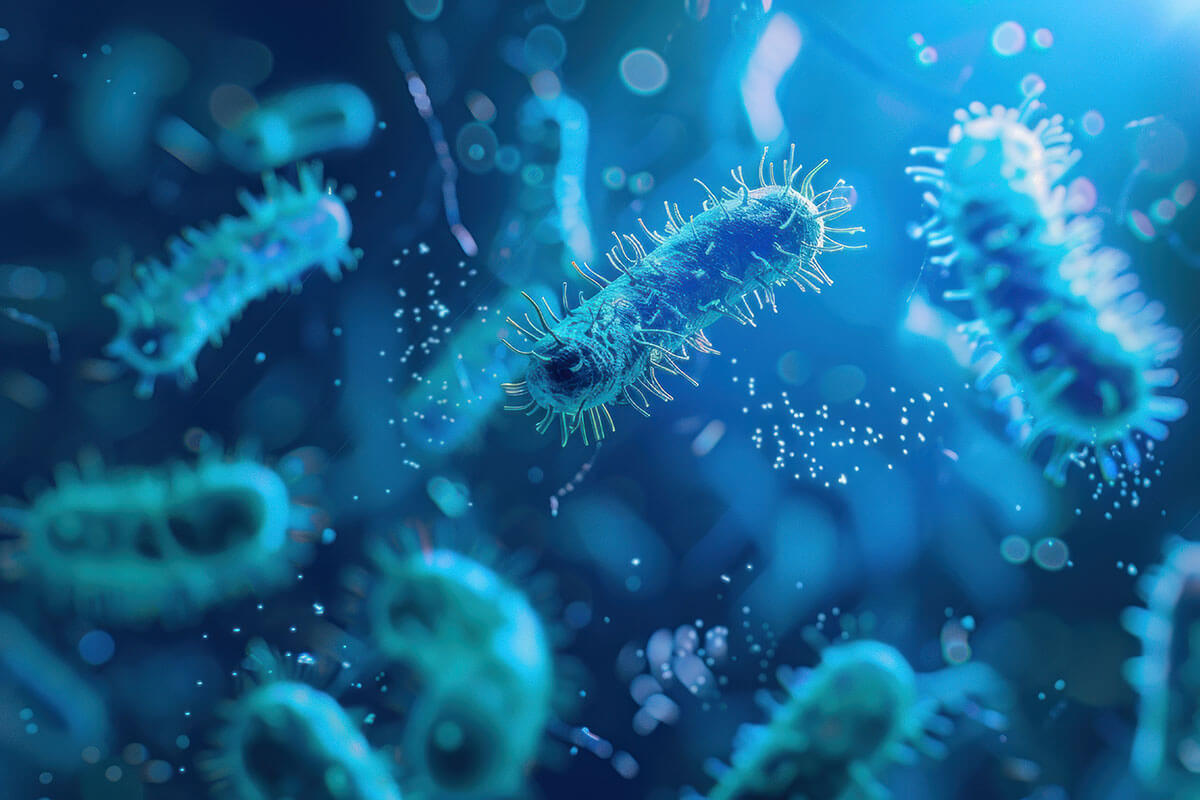We are probiotic & postbiotic producer
At tht, we combine passionate knowledge of biotics with the ability to innovate and perform. As customer oriented partner we collaborate to make each business a success !
Read moreIn 1991, as a pioneer, tht was founded as a spin-off of a Belgian university (ULiège). Today, we produce biotic-based solutions and work continuously at reaching high quality standards.
We turn our scientific knowledge and industrial know-how in fermentation and microbiota into new opportunities and innovative solutions for Health & Well-being.
+30
Years of experience
+50
Strains
+300
Happy clients
+3000
Formulations


The basis of our support is based on our global expertise in the different segments of markets. The added value that we bring is based above all on the experience that we have acquired by supporting our customers in certain sectors of activity that are historical users of Probiotics. This has led us to have precise knowledge of your business needs and issues.

SupplySide West 2025 will bring together the world’s leading health and nutrition professionals from dietary supplement, functional food, and beverage […]

tht will be exhibiting in Bangkok between the 17th to 19th of September.
Probiotics support health by promoting a balanced gut microbiome, which is essential for health. Few examples of their roles are restoring balance after antibiotic use for example, competing with harmful microbes, producing helpful substances like short-chain fatty acids and vitamins (like B12 or K).
Different strains have different effects, so not all probiotics work the same way
The difference between probiotics and prebiotics lies mainly in what they do for your gut health and how they function in the digestive system.
Probiotics are Live Microorganisms.
The most recent definition of probiotics has been established by the International Scientific Association for Probiotics and Prebiotics (ISAPP).
“Probiotics are live microorganisms that, when administered in adequate amounts, confer a health benefit on the host.”
Probiotics add healthy microorganisms to your gut. They help populate your digestive system with beneficial bacteria, which can support digestion, strengthen your immune system, and improve your overall gut health.
Examples of probiotics:
The major sources of probiotics are fermented foods like yogurt, kefir, sauerkraut, kimchi, miso, tempeh, and pickles and probiotic supplements (capsules, tablets, powders, etc.).
Prebiotics are Food for Probiotics
The current scientific definition of a prebiotic was developed by a panel of experts in microbiology, nutrition, and clinical research convened by ISAPP in 2016.
Prebiotics are a substrate that is selectively utilized by host microorganisms conferring a health benefit”.
Prebiotics are non-digestible fibers and compounds found in certain foods that promote the growth and activity of beneficial bacteria in the gut.
Prebiotics act as food for your good gut bacteria, helping them thrive and multiply. They are not digested by your body but are fermented by bacteria in your colon. This fermentation process produces short-chain fatty acids, which nourish the cells of the gut lining and contribute to overall gut health.
Examples of prebiotics:
The major sources of preiotics are high-fiber foods like whole grains, fruits, vegetables, and legumes and prebiotic supplements.
The difference between probiotics and postbiotics revolves around their state in the gut and their roles in maintaining gut health.
Probiotics are Live Microorganisms.
The most recent definition of probiotics has been established by the International Scientific Association for Probiotics and Prebiotics (ISAPP).
“Probiotics are live microorganisms that, when administered in adequate amounts, confer a health benefit on the host.”
Probiotics add healthy microorganisms to your gut. They help populate your digestive system with beneficial bacteria, which can support digestion, strengthen your immune system, and improve your overall gut health.
Examples of probiotics:
The major sources of probiotics are fermented foods like yogurt, kefir, sauerkraut, kimchi, miso, tempeh, and pickles and probiotic supplements (capsules, tablets, powders, etc.).
Postbiotics are Byproducts of Probiotics
The most recent definition of postbiotics has been established by the International Scientific Association for Probiotics and Prebiotics (ISAPP) in 2021.
Postbiotics are preparations of inanimate microorganisms and/or their components that confer a health benefit on the host
Postbiotics are the metabolic byproducts or end-products produced by probiotics after they’ve consumed food or other substances in your gut. These include substances like short-chain fatty acids (SCFAs), enzymes, peptides, and bacteriocins.
Postbiotics are not live organisms, but they are biologically active compounds that have beneficial effects on the body. They are the result of probiotics’ activity and are already processed when consumed.
Examples of postbiotics:
Postbiotics are produced naturally in the gut after probiotics ferment dietary fibers and they can also be found in certain postbiotic supplements that contain these beneficial byproducts directly.
Probiotics come in various strains, each offering unique health benefits. The most common probiotic strains belong to a few main species, including Lactobacillus, Bifidobacterium, Saccharomyces, and Streptococcus, …. the most widely studied strains:
More information ?
For any additional information on our products or make an appointment, you can use the form below. Our experts will be happy to help you find the right solution for your needs.